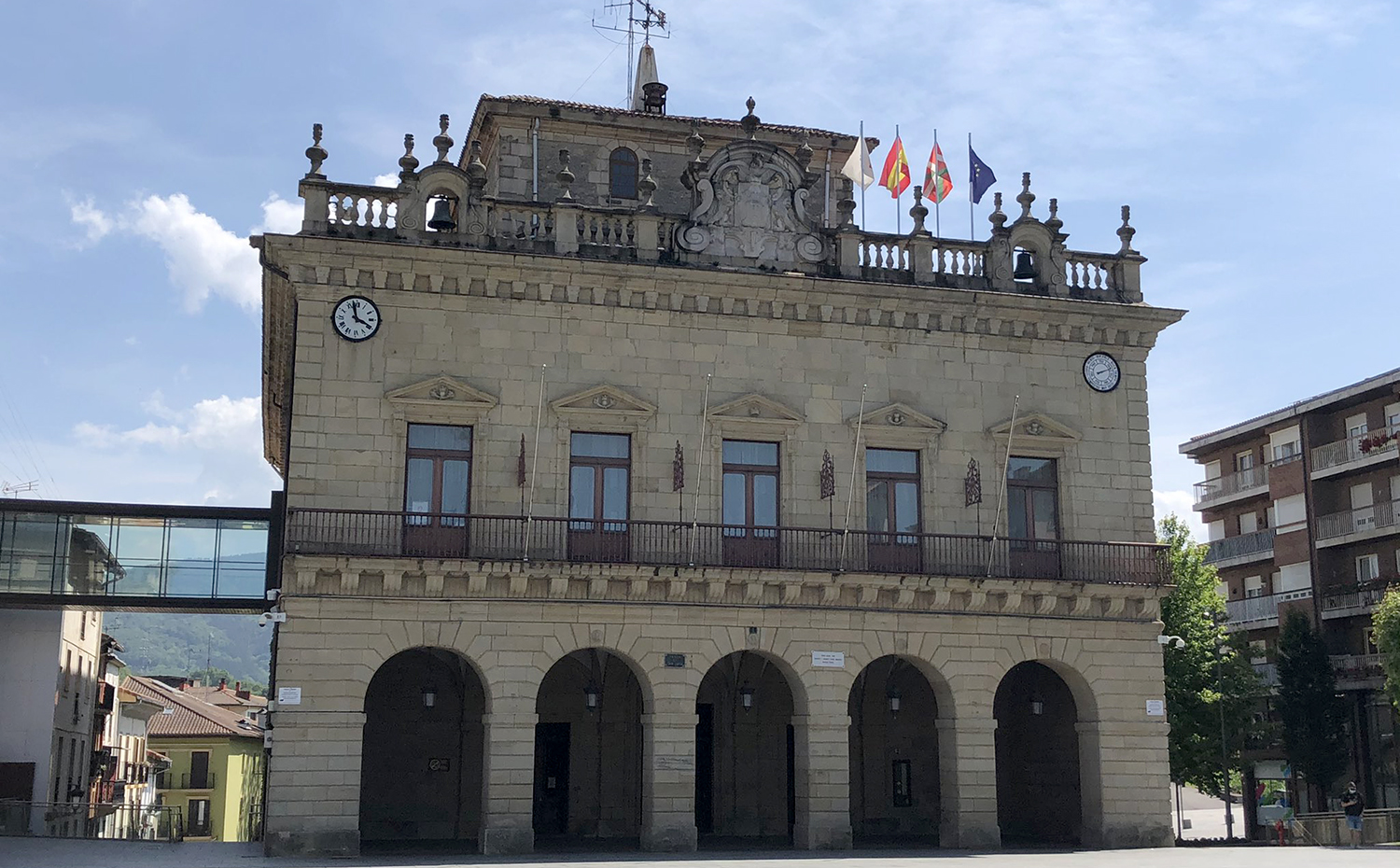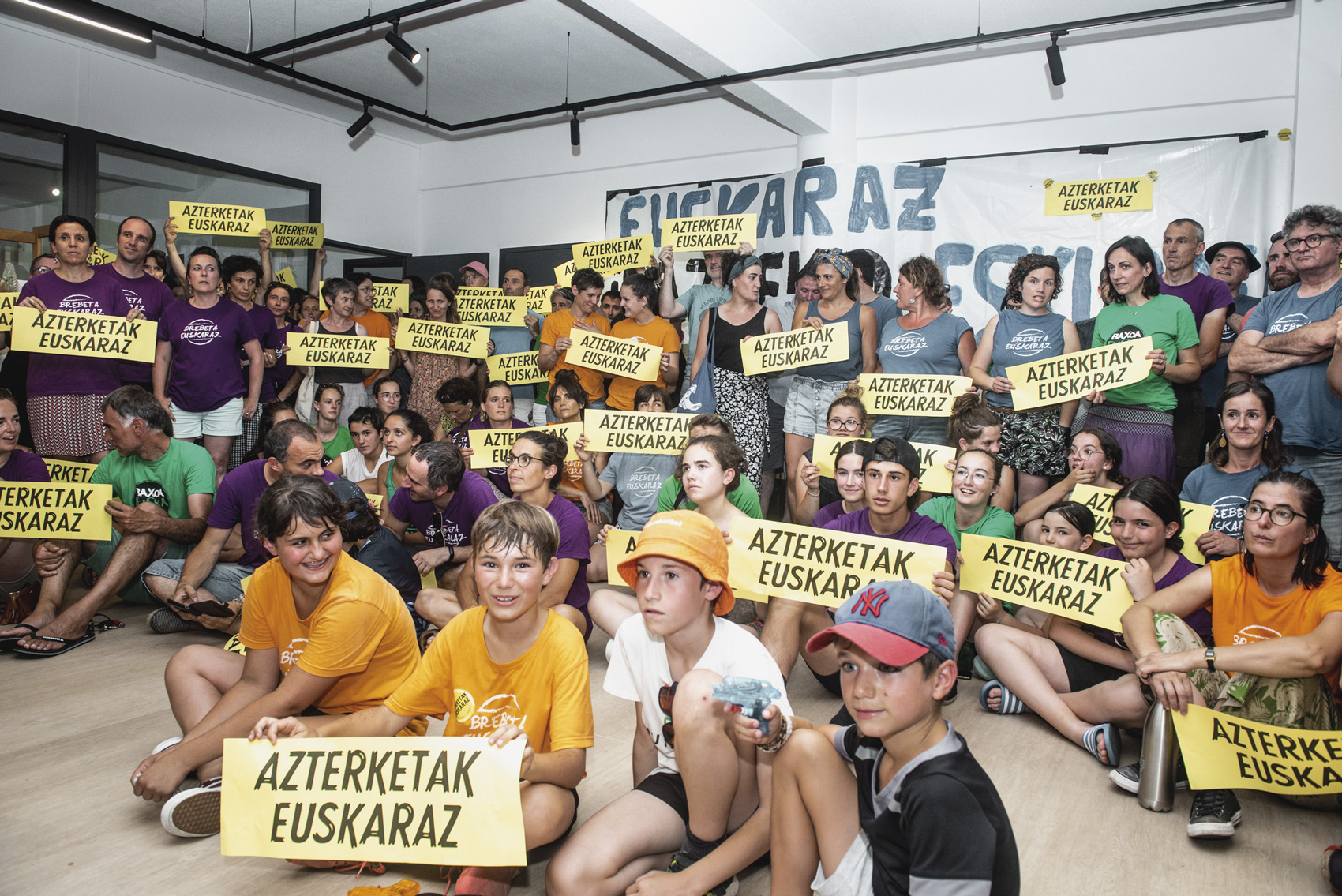The Basque Confederation denounces the action of Member Florence Lasserre
- The bill tabled by Mr Paul Molac on 13 February has been debated and voted on in the French Parliament. The Basque Football Confederation has criticised the article published by Mrs Florence Lasserre after the popular vote.

According to the Basque Confederation, the Member of Morbihan, Florence Lasserre, of the V Voting Camp of Ipar Euskal Herria, approved – on 13 February – the proposal for a law on territorial languages presented in the French Parliament by the Member of Morbihan Paul Molaca, who stated that she had participated in a “non-passionate debate”. The associations working for the Basque "is not true", Fermuki said.
The Confederation states that, unfortunately, the amendment recognizing the immersion model was not adopted by two votes. These two voices were missing from Mr Florence Lasserre and Mr Vincent Bru from the Sixth Polling Camp.
Here Florence Lasser – in French only – publishes the text on her website.
The following is a full document of the Basque Confederation:
In an article published by e-mail on her website (1) Ms. Florence Lasserre of the V Voting Area of Iparralde comments that the bill that Mr. Morbihan Paul Molac has put on territorial languages in the French Parliament was adopted on 13 February following the “intensive discussions” in which she has not participated. We would say this after the fiery discussions in which Maluruski has not participated...
We regret that only by 2 votes did they not accept the amendment recognizing the immersion model. In Iparralde, two votes were missing for this recognition of the model of immersion in which public and private bilingual education and the ikastolas are planned, Mr Florence Lasserre and Mr Vincent Bru of the 6th voting camp. The latter, although already in Parliament and voted on the final proposal, did not take part in the discussions. What is the point of choosing Members if they do not take part in debates on their territory’s issues?
While it is true that in his article Lasserre Anderea writes that “discovering territorial cultures is beneficial to students” or that “mastering a territorial language makes a person smarter”, participating in debates of initiation to the recognition of the territorial languages the citizens want here and voting on the amendments would be a sign of intelligence... Further, Mrs Ewing. Lasserre continues to insist on the “risk of creating linguistic ghettos” and on the “cultural and cultural exclusionary framework”, as if betting on territorial languages was a confluence with the old ideologies of the past. Invoking the struggle for territorial languages with terms such as “commonotarism” and “cultural authoritarianism” is perverse and risky. The double discourse of this kind (here one speech, another in Paris) undermines the work we are doing to transmit and revitalize our languages. In addition, the comparison between past/tradition and modernity is also obsolete not to say offensive. We will say that it is a matter of not realizing the rich cultural dynamics around the Basque country...
Ms. Lasserre also writes that “the State cannot be asked in the name of historical reparation to implement policies in favour of territorial languages and cultures”. Having said that, it is up to the Member of Bastien Lachaud de France Insoumis, who showed an ultra-Jacobin attitude in the debates on the Molac draft law, together with the education minister Jean-Michel Blanquer, who participated in ensuring that the members of the Modem and La République groups in Marche would not vote in favour of the teaching of territorial languages.
However, we agree with Mrs Larive. On one point, I should like to say that languages should not be dependent on the instrumentalisation of political movements. That is why we invite you to reconsider your words, to avoid comparisons from other times and to listen to it with the “cultural authoritarianism”...
Bayona, 21 February 2020
Gabonetako argiak pizteko ekitaldia espainolez egin izanak, Irungo euskaldunak haserretzeaz harago, Aski Da! mugimendua abiatu zuen: herriko 40 elkarteren indarrak batuta, Irungo udal gobernuarekin bildu dira orain, alkatea eta Euskara zinegotzia tarteko, herriko eragileak... [+]





















